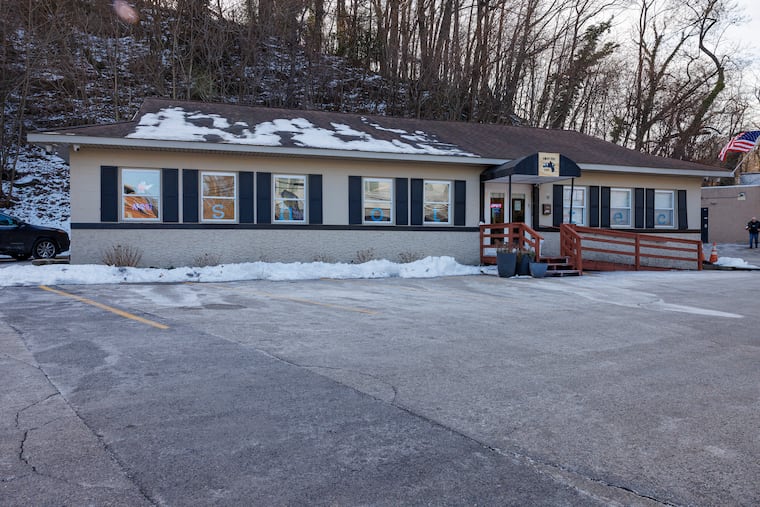
Lower Merion Township’s effort to limit where guns are sold violates state law, the Pennsylvania Commonwealth Court ruled Thursday.
In a case that holds major implications for the power of local governments across Pennsylvania, the court threw out the township’s zoning ordinance that sought to block holders of federal firearms licenses from operating in walkable downtown areas and residential neighborhoods.
The question at the heart of the case was whether the ordinance regulated land-use decisions, the bread and butter of local government, or the sale of firearms, which only the state can do.
» READ MORE: How a fight over Lower Merion zoning rules could impact gun policies across Pennsylvania
A majority opinion, signed by five judges, said the township’s ordinance violated state law that prohibits local governments from regulating guns because its requirements went beyond geographic limits.
“The Township’s ordinance here is clearly intended to regulate the sale of firearms, rather than to regulate zoning,” wrote Judge Matthew Wolf in the opinion. “It is a gun regulation, not a zoning regulation.”
In a statement Todd Sinai, the president of the Democratic Lower Merion Board of Commissioners, said the township was considering its legal and legislative options.
“We, of course, are disappointed in the Commonwealth Court’s decision today. It is afundamental and important right of municipalities to be able to zone the location of uses to best serve their residents and property owners,” Sinai said.
Frustrated with lack of gun-control measures out of Harrisburg, advocates and officials have sought to use local ordinances to limit gun sales and where guns can be carried, and to ban certain firearms. Philadelphia has fought for years for the ability to enact gun laws. But ordinances passed by Philly and other cities, including Pittsburgh, have largely been struck down by courts.
One strategy that has had limited success is the use of zoning ordinances to limit the locations of firearms-related activities, such as shooting ranges or gun stores. The Lower Merion case was seen by some as a test on how far zoning can go to bypass state preemption.
“The Commonwealth Court has reaffirmed once again that local forms of government cannot regulate firearms and ammunition in any manner,” said Joshua Prince, an attorney with Civil Rights Defense Firm who filed the lawsuit.
Lower Merion could appeal the decision to the Pennsylvania Supreme Court, which would have to agree to hear the case, but the decision delivered a blow to gun-control advocates who had hoped Lower Merion’s ordinance could be replicated elsewhere in the commonwealth.
“The decision to treat firearm operations as different within zoning than any other business is unusual and concerning,” said Adam Garber, the executive director of Ceasefire PA.
The ruling, he said, creates a roadmap for how municipalities can zone firearm stores but also puts the impetus on the state to address gun regulations, something lawmakers in Harrisburg have refused to do.
The township approved the zoning rules for firearms dealers in 2023 after the opening of Shot Tec, a gun training facility and seller in Bala Cynwyd, sparked community outrage. The zoning rules established a set of criteria for sellers to operate under and said they could only open in strip malls and industrial use areas.
The township argued that, while local governments aren’t allowed to regulate firearms, they have broad power over zoning and land use.
Grant Schmidt, the owner of the Bala Cynwyd shop, sued after the zoning ordinance impeded his ability to open a second location in his home.
He responded to the news of the ruling Thursday with a gif of Hulk Hogan cheering. His business, which offers training and education on firearms in addition to buying, selling, and storing them, has had four locations in five years. He said he hoped he could now focus on growing his business rather than fighting local policies.
“Now I’m looking to just grow and be normal and invest in my staff more,” Schmidt said.
The litigation focuses on the requirements Schmidt had to adhere to for his most recent Rock Hill Road location, which is within one of the four districts that were zoned for business that require a federal gun license. The ordinance went beyond restricting place and imposed 12 additional requirements, such as installing smash-resistant windows, an alarm system, and internal video surveillance.
The Montgomery Court of Common Pleas found that all but three requirements were preempted by state law. Following Schmidt’s appeal, the Commonwealth Court struck down the remaining requirements and the place restrictions.
» READ MORE: Ban on carrying firearms openly in Philadelphia is unconstitutional, Pa. appeals court rules. But judges stop short of repealing the law.
Lower Merion argued that other businesses, such as medical marijuana dispensaries, animal hospitals, and funeral homes, are subject to compatible conditions to operate. These types of requirements are “traditional local land use control not specific to firearms,” the township argued, according to the majority opinion.
To make their case, Lower Merion cited a previous, non-precedential decision by the Commonwealth Court that allowed Philadelphia to limit gun shops to specific zoning districts.
The difference between the cases, Wolf wrote, is that Philadelphia limited the location of the gun shop but said nothing about how they need to operate. Lower Merion went a step further to restrict how gun shop owners “conduct their business.”
Two judges, Renee Cohen Jubelirer and Lori Dumas, disagreed with the majority’s analysis, saying the decision “strips the Township of its traditional power over land use and zoning.”
“Contrary to the Majority’s conclusion, none of the provisions of the ordinance at issue here regulate the ownership, transportation, or transfer of firearms, ammunition, or ammunition components,” Jubelirer wrote in the dissent.